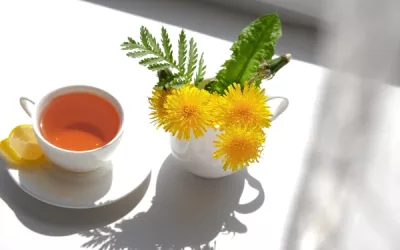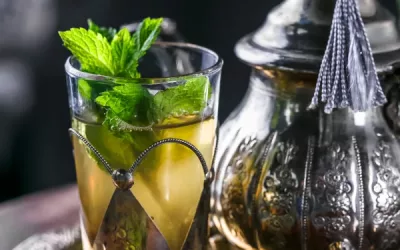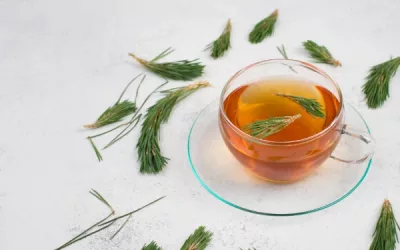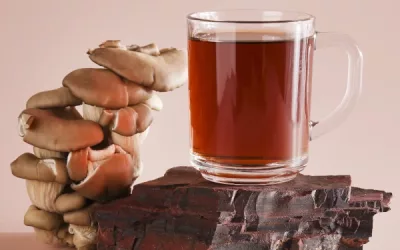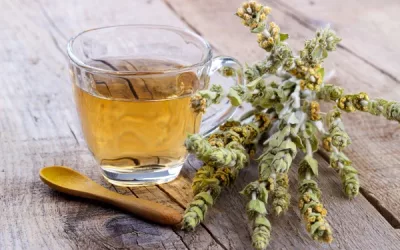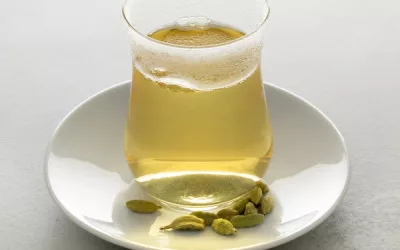Did you know that herbal tea is not actually “tea” at all? Unlike traditional teas, which come from the Camellia sinensis plant, herbal teas derive from a wide variety of herbs, flowers, and spices. As more people seek caffeine-free options for health and relaxation, understanding the nuances of herbal teas becomes essential. This article will demystify herbal tea, covering everything from its caffeine content to health benefits and preparation methods, empowering you to make informed choices for your well-being.
Table of Content
- Does herbal tea contain caffeine?
- What is herbal tea?
- What are the health benefits of herbal tea?
- How does herbal tea support the immune system?
- What are the digestive benefits of herbal tea?
- Can herbal tea help with stress relief and sleep improvement?
- How to choose the right herbal tea?
- Can herbal teas be blended with caffeinated teas?
- Are there any side effects of drinking herbal tea?
- How to prepare and brew herbal tea correctly?
- What is the ideal water temperature for brewing herbal tea?
- How long should you steep herbal tea?
- Can you use fresh herbs to make herbal tea?
- Enhancing flavour with natural additives
- Storage tips for herbs
- What are the most popular herbal tea brands?
- Which brands are known for high-quality herbal teas?
- What varieties do these brands offer?
- Are there organic herbal tea options available?
- Conclusion
Does herbal tea contain caffeine?
Herbal tea generally does not contain caffeine. Unlike traditional teas, which come from the Camellia sinensis plant and thus naturally have caffeine, herbal teas are made from a variety of other plants, fruits, herbs, and flowers that don’t contain caffeine. This makes herbal teas a fantastic choice for anyone seeking a caffeine-free beverage option.
When comparing herbal teas to traditional teas regarding caffeine content, you’ll see that herbal teas are a better option for individuals sensitive to caffeine or those looking to reduce their caffeine intake. Below is a table that breaks down the caffeine content found in various types of teas and outlines their health benefits. This table helps you quickly understand the differences and benefits, making it easier to choose the right tea for your needs.
Comparison of caffeine content in various herbal teas versus traditional teas
| Tea Type | Caffeine Content (mg) | Health Benefits |
|---|---|---|
| Peppermint Tea | 0 | Aids digestion, helps with headaches |
| Chamomile Tea | 0 | Promotes sleep, reduces anxiety |
| Rooibos Tea | 0 | Rich in antioxidants, supports heart health |
| Hibiscus Tea | 0 | Lowers blood pressure, boosts liver health |
| Ginger Tea | 0 | Reduces inflammation, alleviates nausea |
| Lemon Balm Tea | 0 | Relieves stress, aids in sleep |
| Black Tea | 40-70 | Boosts energy, rich in antioxidants |
| Green Tea | 20-45 | Enhances concentration, rich in antioxidants |
| White Tea | 15-30 | Good for skin health, rich in polyphenols |
| Oolong Tea | 30-50 | Assists in weight management, improves heart health |
As seen in the table, herbal teas have various health benefits without caffeine, making them a preferred choice for individuals looking for calmer, caffeine-free alternatives. Traditional teas like black, green, white, and oolong have health benefits but also contain caffeine.
What are the benefits of drinking herbal tea?
Drinking herbal tea can offer a multitude of health advantages. It’s about reaping the goodness from nature with every sip. Apart from being caffeine-free, herbal teas come packed with various nutrients and antioxidants that contribute to overall well-being.
- Improved digestion: Many herbal teas, like peppermint and ginger, help ease digestive issues and improve gut health.
- Better sleep quality: Herbal teas such as chamomile and lemon balm are known for their calming effects, promoting better sleep.
- Natural detox: Herbal teas can help in detoxifying your body, especially varieties like dandelion and milk thistle tea.
- Anti-inflammatory properties: Teas like ginger and turmeric have strong anti-inflammatory benefits that help in reducing inflammation.
- Boosted immunity: Herbal teas such as echinacea and elderberry strengthen the immune system.
Choosing herbal teas over their caffeinated counterparts can significantly impact health, especially when craving a soothing, caffeine-free drink throughout the day.
How to choose the best herbal tea for your needs?
Selecting the best herbal tea for your needs can depend on various factors, including taste preferences, specific health benefits, and any potential allergies. With so many options available, choosing the right one might seem overwhelming, but it becomes easier once you know what you need.
- Identify your health goals: Determine whether you want a tea that aids digestion, improves sleep, reduces inflammation, or boosts immunity.
- Consider flavours you enjoy: Herbal teas come in diverse flavours like minty, floral, fruity, and spicy, so opt for ones you find palatable.
- Check for allergies: Ensure you are not allergic to any ingredients in the herbal tea.
- Quality and sourcing: Always check the quality and origin of the herbs to ensure you’re consuming a high-quality product.
- Trial different types: Don’t hesitate to buy small quantities of multiple options to find out which one suits you best.
Creating a habit of drinking herbal tea could provide health improvements and make your daily routine more enjoyable and calming, especially if you’re looking for caffeine-free options.
Interestingly, the tradition of herbal teas dates back thousands of years. Ancient Egyptians and Chinese used herbal concoctions for medicinal purposes. For example, one notable figure was Hippocrates, often known as the “Father of Medicine,” who documented the benefits of herbal infusions. He recognised their potential and prescribed them to his patients for various ailments. This ancient practice continues strong today, showcasing the timelessness of herbal teas.
Once, I visited a quaint little tea shop in the Danish countryside. The owner, an elderly lady, passionately shared her knowledge of herbal teas. She introduced me to lemon balm tea, noting its calming properties.
I tried it and immediately fell in love with the light citrusy flavour. Since that day, lemon balm tea has been my go-to drink before bedtime, helping me get better sleep and wake up more refreshed. It’s a small change, but it’s had a big impact on my daily life. If you’re looking to explore caffeine-free options, I highly recommend diving into the world of herbal teas.
What is herbal tea?
Herbal tea, despite its name, isn’t technically tea. Real tea comes from the leaves of the Camellia sinensis plant, while herbal tea is made from a variety of other plants. Herbal tea can be crafted from anything from flowers and fruits to leaves and roots. This beverage is caffeine-free, making it a preferred choice for folks who want to avoid caffeine but still enjoy a warm or cold drink.
Unlike traditional teas, which undergo oxidation processes, herbal teas are usually just dried, sometimes crushed, and ready to steep in hot water. You’ve probably come across popular varieties like chamomile, which can be quite soothing, and peppermint, which has a refreshing and minty taste.
What plants are commonly used to make herbal tea?
One of the best parts about herbal tea is its sheer diversity. There are many plants that can be used to get different flavours and health benefits.
- Chamomile: Known for its gentle, apple-like flavour and relaxing qualities.
- Peppermint: Offers a cooling sensation and can aid in digestion.
- Hibiscus: Has a tart, cranberry-like taste and is rich in Vitamin C.
- Ginger: Provides a spicy kick and is great for soothing a sore throat.
- Rooibos: A red tea from South Africa that’s rich in antioxidants.
These plants are not only tasty but also come with their own set of health benefits, from aiding digestion to providing antioxidants. The plants are dried and used either on their own or as part of a blend to create delicious and healthful teas.
How is herbal tea different from traditional tea?
Herbal tea stands apart from traditional tea in several ways. Here’s what makes it unique:
- Ingredients: Herbs, flowers, fruits, and even spices make up herbal teas, while traditional teas come from Camellia sinensis.
- Processing: Traditional teas (black, green, oolong) go through various oxidation processes. Herbal teas usually don’t.
- Caffeine: Traditional teas contain caffeine, whereas most herbal teas are naturally caffeine-free.
- Flavours: Herbal teas can have a wide range of fruity, floral, or spicy flavours.
Herbal teas offer a more diverse range of flavours and can be enjoyed without the worry of caffeine keeping you up at night. They also come in handy if you’re looking for a tea that can either energise you, calm you, or help you during those cold winter months.
What are some popular types of herbal tea?
Herbal teas cover a wide spectrum of flavours and benefits. Here are some crowd favourites:
- Chamomile: Helps to relax and is often used before bed.
- Peppermint: Great for digestion and has a refreshing taste.
- Hibiscus: Offers a tart flavour and is good for cooling off.
- Rooibos: Packed with antioxidants and has a rich, earthy flavour.
- Lemon Balm: Known for its mild lemon flavour and calming effects.
These types not only taste great but they also bring their own unique sets of benefits. Whether you want to unwind after a long day or need a little pick-me-up, there’s likely an herbal tea that can help.
On an interesting note, herbal teas have roots in ancient practices. Take peppermint tea, for example. Ancient Egyptians cultivated peppermint and enjoyed its soothing qualities as far back as 1,000 BCE. They cherished it so much that chefs would utilise it in their cuisine, and healers would prescribe it for various ailments. Their love for peppermint tea goes to show how long-lasting and universal the appreciation for herbal tea really is.
Talking about herbal teas reminds me of the time I first tried chamomile tea. I was dealing with sleepless nights and found myself tired at work. A friend recommended chamomile tea, sharing how it helped her calm down and ease into sleep.
Skeptical but desperate, I decided to give it a whirl. The first night, I brewed a warm cup, inhaled the aromatic, apple-like scent, and took a sip. To my amazement, I felt more at peace. Within a week, I noticed a significant improvement in my sleep. Now, chamomile tea is my go-to bedtime ritual.
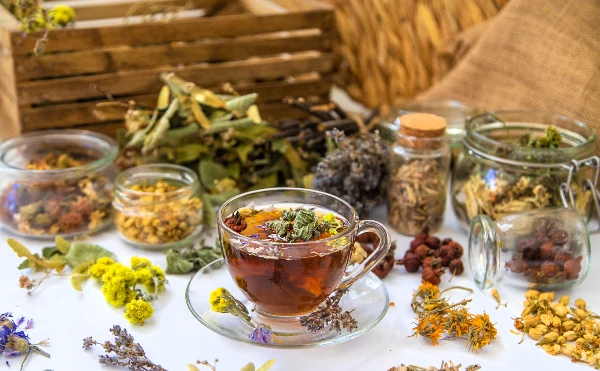
What are the health benefits of herbal tea?
Herbal tea isn’t just your grandma’s remedy for a sore throat. It’s more like nature’s little multi-tool. Antioxidants? Check. Digestive aid? Absolutely. Stress relief? Heck yes. Immune system support? You bet. And let’s not forget, it’s a sleep superhero. So, while it sounds like I’m describing a magic potion handed down by wizards, it’s actually just a delightful blend of herbs steeped in hot water.
No need for a fancy chemistry degree to understand why it’s good for you. Whether you’re a health nut, caffeine-sensitive, or just love the taste, herbal tea has something for everyone.
How does herbal tea support the immune system?
Ah, the immune system. Think of it as your body’s personal security detail, always on the lookout for intruders like bacteria and viruses. Herbal tea, specifically blends containing Echinacea, ginger, or elderberry, can give this security team a serious boost.
- Echinacea: Known for its immune-enhancing properties, this herb can help reduce the symptoms of colds and speed up recovery.
- Ginger: This spicy root isn’t just for sushi. It has anti-inflammatory properties that can help fend off infections.
- Elderberry: Rich in vitamins A, B, and C, elderberry helps in boosting the immune response and combating flu symptoms.
- Turmeric: With its active component, curcumin, it has powerful anti-inflammatory and antioxidant effects.
- Rosehip: Packed with vitamin C, aiding in better immune function.
Herbal blends containing these ingredients can act like your immune system’s best friend, always ready to lend a hand when the sniffles hit. It’s like having a mini wellness army with every sip.
What are the digestive benefits of herbal tea?
Ever had a tummy that’s throwing a tantrum worse than a toddler in a toy store? Herbal tea can come to the rescue. Preparing and sipping on certain herbal teas can promote better digestion and ease gastrointestinal woes.
- Peppermint: Helps to soothe the digestive tract and relieve bloating.
- Chamomile: Not just for better sleep; it also helps with indigestion and stomach cramps.
- Ginger: Again, a multipurpose root that’s great for nausea and digestive issues.
- Fennel: Known to help with bloating and flatulence.
- Dandelion: This humble weed helps with liver detoxification and gentle laxative effects.
So the next time your gut is giving you grief, remember that herbal tea might just be the magic potion you need. It’s like a soothing balm for your insides, making those embarrassing gurgles and discomfort a thing of the past.
Can herbal tea help with stress relief and sleep improvement?
Sleeping like a baby isn’t reserved just for, well, babies. Herbal teas have been shown to assist with stress relief and sleep improvement, making them the perfect nightcap after a long day.
- Chamomile: The queen of calming herbs, it can help reduce anxiety and improve sleep quality.
- Lavender: Not just for fancy spa treatments, it helps promote relaxation and reduce stress.
- Lemon Balm: This citrusy herb is known for its soothing effects on the nervous system.
- Valerian Root: Often used as a natural sleep aid, it can help you fall asleep faster.
- Passionflower: Great for reducing anxiety and improving sleep.
Drinking herbal tea is like giving your brain a foot massage. It relaxes the mind, reduces stress, and helps you drift off into dreamland without counting sheep.
During World War II, soldiers who returned from the front lines often suffered from shell shock, what we now know as PTSD. While they didn’t have the modern luxuries of pharmaceuticals for treatment, many veterans turned to natural remedies to find peace.
Herbal teas, particularly ones with chamomile and valerian root, were used to help them cope with the anxiety and sleep disturbances they faced. So, next time you brew a cup to unwind after a hectic day, remember, you’re sipping on a remedy that has helped people through some of the toughest times in history.
It’s tried, it’s tested, and frankly, it’s just what the doctor ordered—minus the prescription.
How to choose the right herbal tea?
Selecting the perfect herbal tea can be trickier than choosing a new Netflix series during winter. With countless options available, making an informed choice requires a bit of savvy. Whether you’re keen on flavour, seeking health benefits, or trying to avoid certain ingredients, staying on top of those tea labels is crucial.
What should you look for on herbal tea labels?
First things first, deciphering a tea label can feel like cracking a secret code. But fear not. Here are the essentials to keep an eye on:
- Ingredients: Look for natural ingredients. If you can’t pronounce it, maybe it’s not worth drinking.
- Caffeine content: Since you’re after herbal tea caffeine-free benefits, double-check to ensure there’s no sneaky caffeine in the mix.
- Organic certification: This guarantees that your tea leaves haven’t been sprayed with a cocktail of synthetic chemicals.
- Expiry date: Stale tea is sad tea.
- Origin: Teas from reputable regions often promise better quality and taste.
Understanding these label details will not only help you avoid a regrettable purchase but also ensure you’re getting the maximum benefits from your brew.
How do you choose herbal tea based on health benefits?
Alright, health-conscious friends, here’s where it gets interesting! Depending on your needs, different herbs offer various benefits. Here’s a quick rundown:
- Chamomile: Perfect for stress relief and getting that elusive good night’s sleep.
- Peppermint: Great for digestion and a fresh breath partner.
- Lemongrass: Known for its antioxidants and potential to lower blood pressure.
- Ginger: Fantastic for combating nausea and boosting immunity.
- Rooibos: A red gem packed with antioxidants and beneficial minerals.
These health benefits can offer fantastic perks, making your tea time a mini wellness session. So, rather than the usual caffeine fix from regular tea, you could be sipping your way to better health.
Are there any common allergens in herbal teas to be aware of?
Now, let’s get to safety. Herbal teas are usually a safe haven for those avoiding caffeine, but beware of potential allergens. Key culprits include:
- Chamomile: Related to ragweed, it can trigger allergies in sensitive individuals.
- Peppermint: While rare, allergies can occur.
- Cinnamon: Some blends contain this spice, which might ignite allergic reactions.
- Nuts: Some teas might use nuts for flavour, so always double-check.
- Liquorice root: Not a common allergen but can cause issues for those with certain health conditions.
Keep an eye out for these components to avoid unpleasant surprises. If you have specific allergies, always read the labels diligently or consult with your friendly neighbourhood allergist.
Long before the global obsession with coffeehouses, Cleopatra VII, the infamous Queen of Egypt, was already onto something with herbal brews. Historical records suggest that she relied heavily on herbal concoctions, especially those made from hibiscus and mint, to keep her skin radiant and her mind sharp. Imagine an ancient queen deciding on her herbal tea potions—now that’s what I call being ahead of trends!
So there you have it. Picking the right herbal tea isn’t rocket science, just a little bit of label-reading and knowing yourself. Whether it’s sleep you crave, digestion help, or just a lovely, caffeine-free hug in a cup, your perfect herbal tea is out there. Happy sipping!
Can herbal teas be blended with caffeinated teas?
Absolutely, you can blend herbal teas with caffeinated teas. It’s like combining the best of both worlds. Think of it as creating the perfect harmony between serenity and alertness. You get a unique brew that has a bit of zing from the caffeine and a touch of calm from the herbs. Let’s dive into the why, the how, and the which of this delightful concoction, shall we?
When it comes to blending herbal teas with caffeinated teas, the possibilities are endless, and the reasons are just as varied. Whether you’re looking to dilute the caffeine kick or boost the flavour profile, combining these two can lead to some interesting and delightful results.
Why would someone blend herbal tea with caffeinated tea?
People have different motivations for blending herbal teas with caffeinated ones. Here are some common reasons:
- Balanced caffeine levels: Not too much, not too little—just right. This way, you can enjoy your tea without jitteriness.
- Enhanced flavour profile: Combining different teas can create unique and complex flavours that a single tea might lack.
- Health benefits: Adding herbs can bring additional health perks, such as digestion aids or calming properties.
- Temperature control: Some herbal teas have natural cooling or warming effects, which can adjust the overall feeling of your blend.
- Experimentation: Simply playing around with ingredients to find the perfect, personalised tea blend.
Now, isn’t that practical and fun?
What are some popular herbal and caffeinated tea blends?
Combining herbal and caffeinated teas is an adventure for your taste buds. Here are some popular blends you might want to try:
- Minty Green: Peppermint leaves mixed with green tea—refreshing and energising.
- Chamomile Chai: Soothing chamomile paired with spicy chai for a calming yet zesty experience.
- Citrus Black: A black tea base with a burst of citrusy lemon peel or zest.
- Lavender Earl Grey: Calming lavender flowers added to your robust Earl Grey.
- Hibiscus Rooibos: Earthy rooibos combined with tart hibiscus for a sweet-tangy treat.
With these combos, you’ll not only enjoy diverse flavours but also varied health benefits and caffeine levels.
How can you blend herbal and caffeinated teas at home?
Creating your own blend at home isn’t rocket science. All you need are a few ingredients and a bit of creativity. Follow these steps for a seamless DIY tea blending experience:
- Choose your base tea: Pick a caffeinated tea like green, black, or oolong.
- Select your herbal additions: Consider herbs like mint, chamomile, or lavender.
- Decide on ratios: A common ratio is 70% base tea to 30% herbal. Adjust based on your taste.
- Mix it up: Combine the leaves in a tea infuser or teapot.
- Steep and sip: Infuse your blended tea in hot water for the recommended time, usually 3-5 minutes, then enjoy.
See? Easy-peasy, lemon-squeezy. So, put on your scientist hat and start experimenting with flavours.
History buffs, here’s an interesting tidbit: Did you know that the British East India Company played a significant role in popularising tea in Britain during the 17th century? They imported tea leaves from Asia and initiated the tea culture that remains a cornerstone of British tradition today.
Without their endeavours, we might not be discussing these delicious tea blends at all! Can you imagine a world without tea time? Utter madness!
Are there any side effects of drinking herbal tea?
Ah, the allure of herbal tea! It’s like a warm hug in a cup, isn’t it? Non-caffeinated and seemingly all-natural, it feels like a health-conscious dream come true. But wait! Before you brew yourself into oblivion, there are some side effects of drinking herbal tea you ought to know. Don’t worry, though; I’ll break it all down for you, no tea-drinking jargon here.
So, let’s navigate through the maze of common side effects, interactions with meds, overconsumption risks, allergic reactions, and whether it’s a good idea to sip herbal tea when you’re pregnant.
What are the common side effects of herbal tea?
Oh, common side effects – the necessary evil that comes with all good things, even herbal tea. Although it’s often touted as a gentle and wholesome option, it does have its quirks.
Some of the usual suspects in the adverse reactions department include:
- Digestive Issues: Herbal teas like peppermint or ginger can send your stomach into overdrive, causing nausea, bloating, or even heartburn.
- Dizziness and Headaches: Some herbs like ginseng or ginkgo biloba can crank up the dizziness or headache dial.
- Kidney and Liver Concerns: Drinking herbs like comfrey and kava in excessive amounts can give your liver and kidneys a workout they didn’t sign up for.
- Allergic Reactions: Chamomile, for instance, can set off an allergy flare-up for those sensitive to the ragweed family.
While these side effects are relatively common, individual experiences can vary. So, if your herbal tea starts feeling more like a curse than a cure, it’s time to rethink that brew.
Can herbal tea interact with medications?
Yes, your innocent-looking herbal tea can indeed crash the medication party uninvited. It’s like that one friend who always brings drama.
Here’s how herbal tea might meddle with your meds:
- Chamomile and Warfarin: Chamomile can enhance the blood-thinning effects of warfarin, leading to an increased risk of bleeding.
- St. John’s Wort and Anti-depressants: This herb can mess with your serotonin levels when combined with certain antidepressants, potentially leading to serotonin syndrome.
- Licorice Root and Blood Pressure Meds: Licorice can hike up your potassium levels, interfering with drugs like diuretics.
- Ginseng and Blood Sugar Meds: Ginseng can mess with blood sugar levels, clashing with diabetic medications.
So, it’s always advisable to chat with your doctor if you’re on any medications. No one wants herbal tea going rogue on them.
Is it safe to drink herbal tea during pregnancy?
Expecting a baby and wondering if herbal tea is your new caffeine-free BFF? Well, let’s spill the tea on this one.
While some herbal teas are considered safe during pregnancy, others might be risky:
- Peppermint Tea: Generally safe and can actually soothe nausea, but moderation is key.
- Raspberry Leaf Tea: Often recommended in later pregnancy to potentially ease labour, but avoid early on due to its uterine-stimulating effects.
- Chamomile: Best avoided as it can increase the risk of preterm labour.
- Licorice Root: This is a big no-no as it can affect your baby’s brain development and trigger preterm birth.
So, while herbal tea can be your friend during pregnancy, it’s a finicky friend that needs careful selection. Again, it’s always wise to consult your healthcare provider before diving into a teapot.
To give you some historical context, back in 1941, a botanist named Maud Grieve published “A Modern Herbal,” a text that provided comprehensive information on the medicinal properties of herbs. She compiled both the benefits and the risks, emphasising the importance of moderation and informed usage.
Maud’s pioneering work can remind us to respect the power of herbs – even in our beloved herbal teas. So, whether you’re sipping ginger to soothe a yucky stomach or chamomile to drift off into dreamland, always remember to do so thoughtfully.
How to prepare and brew herbal tea correctly?
Alright, tea enthusiasts and health buffs, gather round! Brewing herbal tea isn’t rocket science, but getting it just right makes a world of difference. From boiling the water (nope, don’t just guess the temp) to picking between fresh or dried herbs, let’s get you brewing the perfect cuppa!
What is the ideal water temperature for brewing herbal tea?
First things first, let’s talk about water temperature. No one likes a lukewarm or scalding hot beverage. Herbal teas, unlike their black or green cousins, are delicate.
- Herbal brews: 200-212°F (93-100°C)
- If using delicate herbs like chamomile, aim for 200°F (93°C) to avoid bitterness.
- Spicy brews: Think ginger or peppermint? Go full boil at 212°F (100°C).
Why does this matter? The right temperature coaxes out the subtle flavours and beneficial compounds, without zapping it into oblivion. Plus, no likes their tongue burnt off.
How long should you steep herbal tea?
Time’s a-ticking! The sweet spot for steeping herbal tea varies. Too short, you’re left with flavourless water; too long, it’s like chewing on leaves.
- Standard herbs: 5-7 minutes
- Stronger ingredients: For ginger or turmeric, shoot for 10-15 minutes
- Delicate herbs: Chamomile or lavender? Give it 3-5 minutes to avoid overpowering bitterness.
These times ensure you extract maximum flavour and health benefits without making it a bitter experience.
Can you use fresh herbs to make herbal tea?
Ah, the age-old debate: fresh or dried? Both have their merit, but let’s break it down:
Fresh Herbs:
- Vibrant, fresh flavours.
- Need to use more (about twice the amount of dried).
- Best for when you have a herb garden (or know a mate who does).
Dried Herbs:
- Intense, concentrated flavour.
- Longer shelf life.
- Convenient, especially in the dead of winter when fresh herbs are scarce.
Pro tip: Whichever you choose, always go for organic to dodge pesticides in your cosy cup.
Enhancing flavour with natural additives
Let’s talk flavour upgrades. Why settle for plain when you can jazz it up?
- Citrus zest: Brightens any herbal tea.
- Honey: A natural sweetener that also fights sniffles.
- Fresh fruit: Think berries or slices of apple.
- Spices: Cinnamon sticks and star anise add warmth.
- Mint: Elevates the refreshing factor to the max.
Sprucing up your cup not only boosts the taste but also packs in extra health benefits. Win-win!
Storage tips for herbs
You’ve got the herbs, now let’s keep them fresh. Storage is key.
- Cool, dark places: Light and heat break down essential oils.
- Airtight containers: Keeps moisture out and the flavour in.
- Use by date: Aim to use dried herbs within 6-12 months, fresh herbs within a week if stored in the fridge.
Bad storage means your tea tastes like stale hay. No one wants that. Ever.
In ancient China, Empress Shennong discovered tea by chance. One day, while boiling water under a tea tree, a few leaves drifted into her pot. Her curiosity piqued, she tasted the brewed water and found it tasted divine and refreshing.
And just like that, tea was born. Much like Empress Shennong’s serendipitous experience, finding your perfect brew might just require a bit of playful experimentation. And who knows? You might just stumble upon your signature blend.
What are the most popular herbal tea brands?
You’ve wandered into the world of herbal tea, huh? Good choice! Not only do you get flavours that can compete with your morning coffee, but you also dodge that pesky caffeine jitterbug. So, let’s spill the tea—pun intended—on the most popular herbal tea brands that are winning hearts and taste buds alike.
First off, brand reputation is crucial. Think of it as the first impression at a job interview. Companies like Twinings, Yogi Tea, and Pukka Herbs have been around the block and come highly recommended for their consistent quality.
These brands are often backed by glowing customer reviews, and they make a point of using high-quality ingredients. Whether you’re fancying a calming chamomile or a zesty lemon ginger, these brands have got you covered. Here’s why they are the go-to choices:
- Brand Reputation: Time-tested brands that everybody seems to love.
- Product Quality: Top-notch ingredients that deliver on taste and health benefits.
- Variety of Offerings: A wide array of flavours for every palate.
- Organic Options: Many of them offer organic selections, because why mess with Mother Nature?
Which brands are known for high-quality herbal teas?
If you’re aiming to avoid a disappointing brew, stick to the heavyweights in the herbal tea world. High-quality means more than just fancy packaging; it’s about what’s inside the bag.
- Twinings: This brand is like the granddaddy of teas, established in 1706! They know their stuff and offer robust, consistent flavours.
- Yogi Tea: Known for its wellness-centric brews, Yogi Tea combines great taste with Ayurvedic principles.
- Pukka Herbs: The Brits know their teas, and Pukka is a prime example. Think organic, high-quality ingredients combined with eco-friendly practices.
- Traditional Medicinals: Perfect for those who consider tea as medicinal. Their blends focus on health benefits without compromising on taste.
- Tazo Tea: A brand that likes to keep things interesting with unique herbal blends. Adventure in a cup, indeed!
These brands not only excel in taste but also tick boxes you probably didn’t know needed ticking.
What varieties do these brands offer?
Let’s get into the delicious details. Variety is the spice of life, and when it comes to herbal teas, these brands don’t disappoint. They offer a smorgasbord of options, making sure there’s something for everyone.
- Chamomile: For those nights when you need to unwind.
- Peppermint: Refreshing and great for digestion.
- Rooibos: A caffeine-free powerhouse rich in antioxidants.
- Ginger: Perfect for a zesty kick and digestive relief.
- Hibiscus: Tangy and packed with Vitamin C.
- Lavender: Ideal for those stressful days.
- Lemon Balm: Known for its calming effects.
- Rosehip: A fruity option that’s rich in Vitamin C.
The sheer range means you can cycle through different teas, keeping your taste buds entertained while sipping on something beneficial.
Are there organic herbal tea options available?
If you’re a proud card-carrying member of the organic brigade, you’re in luck. Many of these top-tier brands offer organic varieties. Organic options ensure that what you’re drinking hasn’t been tainted by pesticides or other chemical nasties. So, you get the pure, unadulterated essence of the herbs.
- Pukka Herbs: Almost all their teas are organic. You can sip with less guilt and more flavour.
- Yogi Tea: They have a broad range of certified organic blends. Your body and Mother Earth thank you.
- Traditional Medicinals: A brand that’s firmly rooted in offering organic and ethically sourced teas.
- Tazo Tea: They offer a selection of organic blends. Even their packaging frequently supports sustainability.
- Celestial Seasonings: While not 100% organic, they do offer multiple organic options, so you don’t have to compromise.
These brands ensure you can stay committed to your organic lifestyle while enjoying a satisfying cup of tea.
You know who else appreciated a good cup of herbal tea? The legendary Chinese Emperor Shen Nong. He’s often considered the father of Chinese medicine and is said to have discovered tea in 2737 BCE when leaves from a wild tree blew into his pot of boiling water.
Legend has it, he tasted the concoction and found it both refreshing and healing. Now, whether you believe in legends or not, Shen Nong’s supposed accidental discovery set off a chain of events leading to the diverse and flavourful world of herbal tea that we relish today. Cheers to that!
Conclusion
In wrapping up our exploration of herbal tea and its caffeine content, I find it essential to reflect on the variety and richness that herbal teas offer. From their diverse plant sources to the unique health benefits they provide—such as antioxidant properties and digestive support—herbal teas stand apart from traditional caffeinated brews.
Understanding that most herbal teas are naturally caffeine-free has significant implications for those of us who are health-conscious or sensitive to caffeine. This knowledge not only helps us select beverages that align with our wellness goals but also opens new avenues for exploring flavours and benefits.
As I consider potential next steps, I encourage you to delve deeper into the specific types of herbal teas that resonate with your needs. Whether you seek stress relief, enhanced immunity, or just a soothing cup at the end of a long day, there’s a blend waiting for you. Remember to read the labels carefully, be aware of any allergies, and perhaps, experiment with blending herbal teas with your preferred caffeinated options for a unique taste and experience.
With this newfound appreciation for herbal tea, I invite you to ponder a question: How might incorporating herbal tea into your daily routine enrich your well-being and ritual? In a world that often moves too quickly, perhaps taking a moment to savour a cup of herbal tea is not just a beverage choice but a step towards a healthier, more mindful lifestyle. As the herbalists say, “Drink your tea slowly and reverently, as if it is the axis on which the world revolves.” Let us embrace the calm that herbal tea can bring, one sip at a time.
Resources
- Review on herbal tea as a functional food: classification, active components and health benefits
- Role of Herbal Teas in Regulating Cellular Homeostasis and Autophagy
- Herbal Teas and their Health Benefits: A Scoping Review
- Tea and Health: Studies in Humans
- Common Herbal Dietary Supplement-Drug Interactions
- Review on herbal teas


